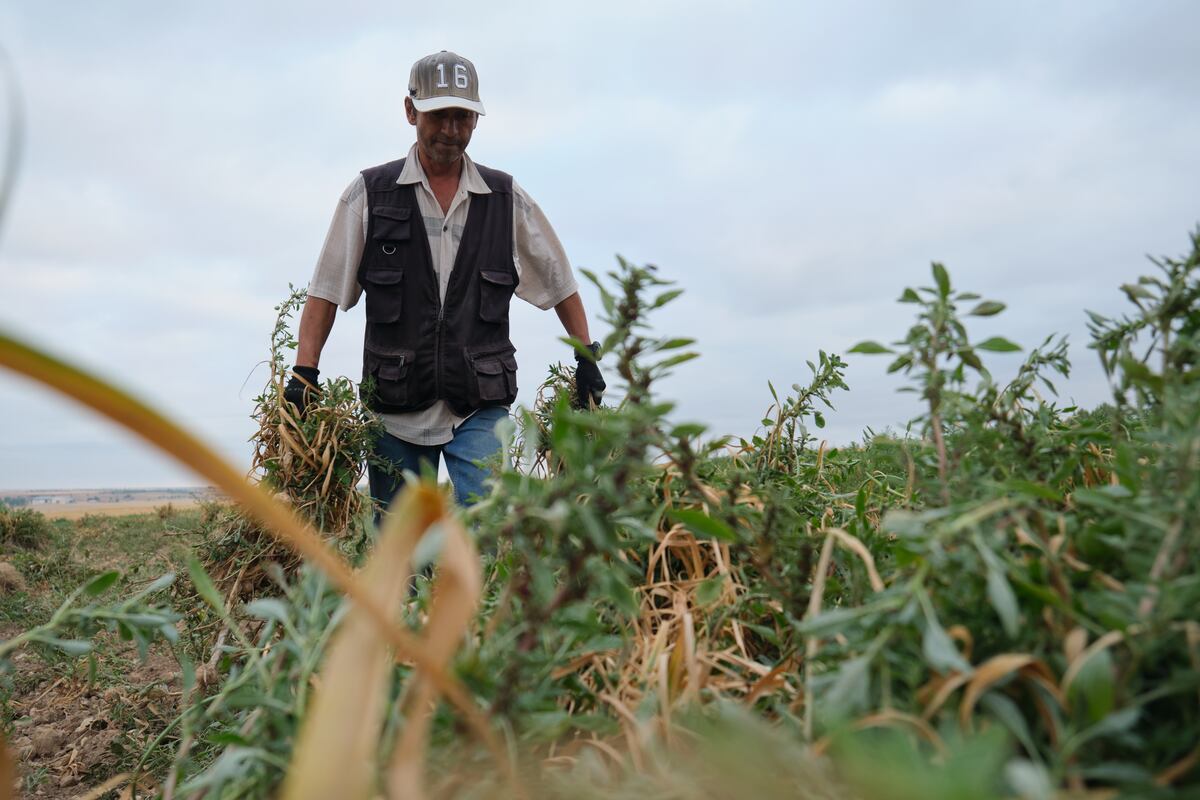Farmers will not go home empty-handed. The Ministry of Agriculture has sent to the heads of the agricultural organizations Asaja, Upa and Coag a proposal with 43 measures in response to the demands raised in recent months by the sector in its mobilizations. The plan contemplates changes in matters of taxation, flexibility and simplification of the Common Agricultural Policy (CAP), environment, food chain law, animal health, extensive livestock farming, financing, agricultural insurance, foreign trade or incorporation of young people, such and as EL PAÍS had anticipated and confirmed this Monday by Minister Luis Planas, who presented the proposal to the media. The most innovative thing is the announcement of ICO loans for 700 million euros, divided between 200 million for young farmers and support for generational change, and another 500 to guarantee credit operations aimed at the agricultural sector.
These proposals, some of which are already included in the document on the modification of the CAP Strategic Plan and in other previous proposals, will be analyzed this week by the agricultural organizations, although Agriculture insists that the bulk of the negotiation has already is closed.
The first reactions from professional agricultural associations have been positive. Lorenzo Ramos, general secretary of UPA, observes progress in most of the demands raised from the beginning by the sector, although he believes that minor aspects are missing that still need to be discussed. Pedro Barato, top representative of Asaja, on the other hand, is more critical and believes that the proposals do not cover the entire problem and do not solve the problems specific to each region. Miguel Padilla, general secretary of Coag, believes that we still need to delve deeper into what is linked to food exports to “ensure that there is no overlap of third-party products with national campaigns.” The three, however, consider that they are starting from a sufficiently solid base to reach an understanding, although some of the measures will also have to be negotiated with the autonomous communities.
In relation to the environmental policy of the CAP, Agriculture proposes simplification and flexibility in the application of the so-called Good Agricultural and Environmental Conditions. These, known by the acronym BCAM, refer to tillage tasks, risks of soil erosion, rotation of cropland, minimum percentages of surfaces of non-productive elements, elimination of controls and penalties in terms of reinforced conditionality for farms with less than 10 hectares. This policy of greater flexibility will also apply to ecoregimes and biodiversity areas. “We believe that with these changes this chapter is completed,” Planas concluded at the press conference.
Despite attempts to encourage digitalization in the field, Agriculture will also eliminate the obligation for georeferenced photos and postpone the mandatory digital notebook. At the same time, he promises more digital advice for farmers. In relation to livestock, the mandatory electronic identification of bovines is postponed for one year, the application of the Comprehensive Health Plan is extended for one year and the management of the bovine sector is made more flexible.
Although he still lacks support, Planas also announces that he will continue looking for a way to implement mirror clauses for products from third countries, for which he believes it is necessary to create a permanent working group to monitor imports and exports, with means of border control and special dedication to maximum residue limits. The minister believes that he is “closer than ever” to uniting the consensus of a majority of States to consolidate a European project in this regard.
A reinforcement of the food chain law is also proposed through the Agency for Information and Control, the Aica, now elevated to the rank of state agency. This will lead to more inspections, more publicity of fines and updated costs. Although at the moment the initiative remains stalled, Planas believes that the fastest way to execute the plan is through an amendment to a bill in progress. However, he has not specified when this could happen.
With respect to agricultural insurance, Agriculture will promote agreements with communities to increase support levels to more than 70% and with modulations of aid for professionals, young people and priority farms. As for taxation, the same will be maintained in the special taxes on agricultural diesel, in the 35% reduction in the fuel and fuel bill and 15% in fertilizers; In the objective estimation method of personal income tax, in the net return for the year 2023, the general reduction will go from 5% to 15%. For all aid linked to eco-regimes, a reduction in the tax base of 1,100 euros is maintained.
Race against time
Regarding the temporality of the measures, Planas has responded that some linked to the national Strategic Plan, especially those related to the BCAM, will come into force very soon retroactively from January 1, 2024, while others, which depend on the approval of the European Parliament, will be postponed until 2025.
Now the Agriculture portfolio begins its race against time. At the end of this month the European Parliament will be dissolved in order to begin the campaign for the community elections, which will be held between June 6 and 9, so the last plenary session of this body will be key to implementing the measures. and that it can come into force as soon as possible. Although Planas takes it for granted that the Community Chamber will support these regulations.
Follow all the information on
Economy
and
Business
on
and
X
, or in our
weekly newsletter

